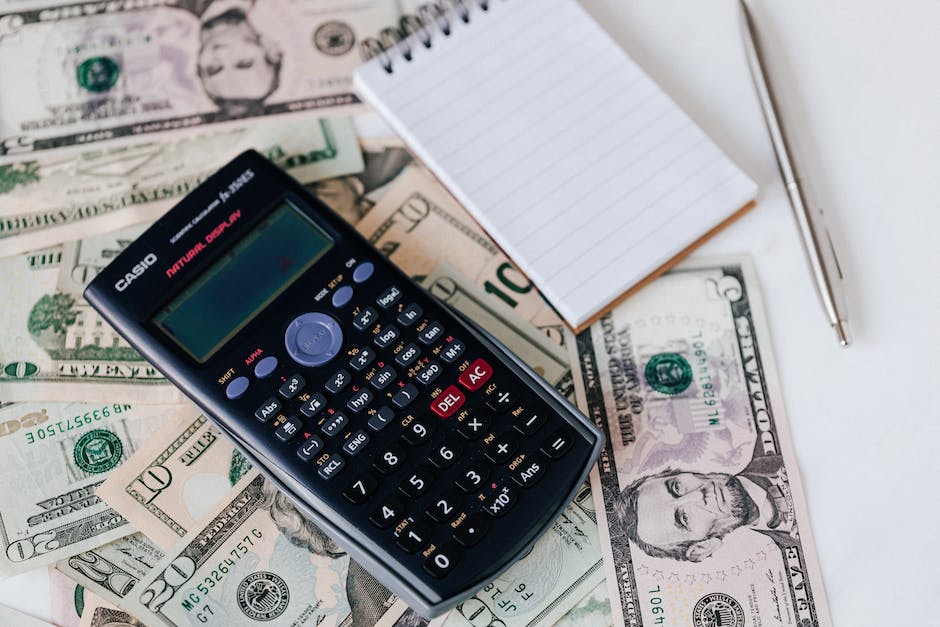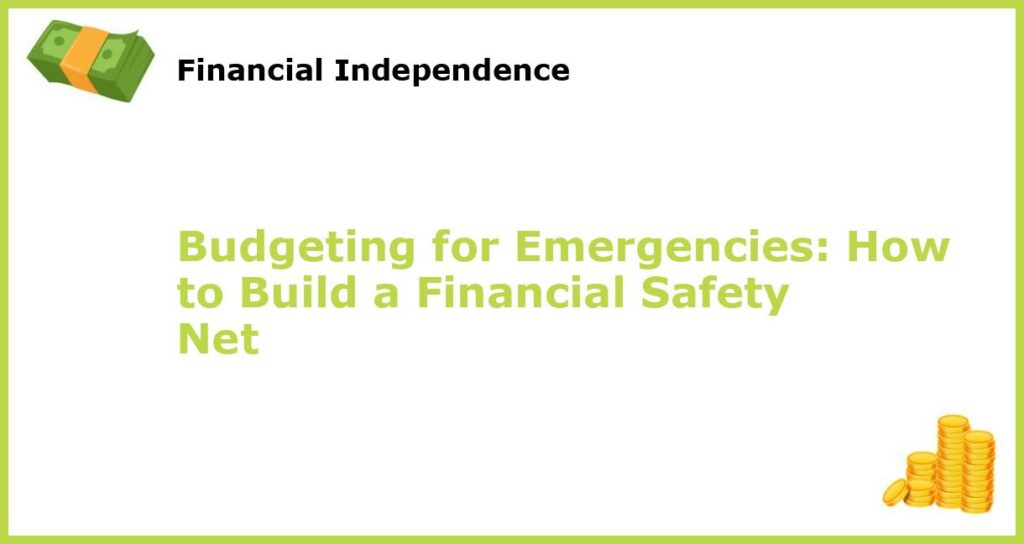Let’s face it; life is unpredictable, and emergencies can happen at any moment without a warning. Whether it’s an unexpected medical expense or a job loss, it is safe to say that we all need a financial safety net to fall back on when the unexpected happens. Building an emergency fund that can help you through tough times and give you a sense of security is essential. Keep reading for our guide on building a financial safety net and budgeting for emergencies.
The Importance of Emergency Fund

People face emergencies in life constantly, making it essential for everyone to have a financial safety net set up to avoid worsening circumstances. Your financial security is at stake if you don’t have an emergency fund. That’s why you must begin building one right away. The peace of mind that comes with knowing that you have money tucked away in case of emergencies can keep you from getting into debt or losing your home/property. The financial safety net can help protect you from financial shocks, which often lead to stress and can even have long-term effects on your wellbeing. Whether you have a stable income or not, emergencies can happen to anyone, and for this reason, an emergency fund is a must-have.
The Ideal Amount for an Emergency Fund

The second step in building an emergency fund is to determine how much money you need to save. While there isn’t a one-size-fits-all answer to this question, financial experts recommend that an appropriate emergency fund should be six months of living expenses. The sum necessary for developing an emergency fund varies depending on various factors such as monthly expenditures, lifestyle choices, family size, and career stability. Therefore, assessing the current circumstances can help determine the necessary amount. Individuals with high expenses, career instability, or those with children may need to keep more money in their emergency fund than those without dependents or have a lower cost of living. Learning how much you require is the first step in building an emergency fund.
The Sources of Fund for Emergency Fund

Once you learn how much money you need for your emergency fund, the next thing is to source the funds. An emergency fund can be funded through different channels, including contributed funds, insurance policies, or home equity lines of credit. A high-yield savings account, money market fund, or liquid investment account can hold the contributed funds. You can also use a tax refund, bonus, or inheritance to jumpstart your emergency fund. Another way to build the emergency fund is to redirect funds that were meant to pay off debts or save for a new car or vacation to the emergency fund. The key is to start small and consistently add to the fund until it reaches the required amount.
How to Save Money for Emergency Fund

Prioritizing budget to save money for an emergency fund is indispensable. Look for areas to reduce extra expenses, and redirect the money saved towards the emergency savings account. If the emergency fund goals seem unmanageable, try setting mini goals to motivate reaching the grand goal. It’s essential to set small goals with deadlines, as they help you focus and see the progress you’re making, which can be encouraging. Additionally, create a budget and avoid overspending. Consider cutting out unnecessary expenses, such as dining out, entertainment, or subscriptions. Redirect any extra money to the emergency fund, and prioritize this savings plan over other expenses.
What to Do with Your Emergency Fund

It is important to keep your emergency fund liquid, meaning not tied-up in investments – since it should be accessible whenever needed. Focus on preserving the buying power of the emergency fund by keeping it in an interest-bearing account. The emergency fund should be reserved for genuine emergencies such as job loss, health emergencies or unexpected deaths. It’s essential to prevent yourself from using the emergency fund for non-emergencies, as it can be tempting to do so. To avoid this, keep it in a separate account, out of sight and mind, making it less tempting to touch.
How to Refill Your Emergency Fund

Emergencies can be financially draining, depleting the funds accrued in the emergency fund in a matter of weeks. To refill the account, work towards a goal of contributing to the account until it reaches the ideal amount set. Start a budget plan, reduce unnecessary expenses, and prioritize savings until the account is refilled. You can also consider redirecting any irregular income, such as bonuses or tax refunds, to the emergency fund. Remember, by building an emergency fund, you’re safeguarding your future, and it’s essential to be disciplined when refilling it.
Using Credit as a Last Resort

Credit cards should only be used as a last resort in case of emergencies. A high-interest rate is charged on credit cards, and it might lead to accumulating debt, making the situation worse. It is essential to only use credit cards when enough savings to cover emergency expenses are not available in the emergency fund. If you have to use a credit card, have a plan to pay it off as soon as possible. Doing so can help prevent the accumulation of interest, which can be financially draining in the long run.
The Benefits of Investing Emergency Funds

Background research and expert opinion suggest that a small percentage of the emergency fund may be invested to provide a boost to returns without putting the whole amount at risk. With emergency fund cash hovering uselessly, we suggest investing a portion of it to boost returns. Research has shown that investing even a small percentage of the emergency fund can increase overall returns, potentially helping you reach your financial goals faster. By investing part of the emergency fund, you can maintain the cash you might require for immediate use while earning interest on your funds’ remaining portion.
The Downside of Investing Your Emergency Fund

Investing your emergency fund money is never risk-free. Investment is a game of chance, so there is a chance of losing the money invested in the program. The emergency fund is meant to be a secure and reliable financial buffer in case of uncertain events. You don’t want to invest your emergency funds in a short-term investment that might lose value. It is essential to critically assess the situation, including the risk factor, before ultimately deciding on whether to invest a portion of the emergency fund. The key is to balance the risk and the reward.
The Bottom Line

Emergencies are inevitable in life, making it essential to build a financial safety net to ensure monetary stability. We recommend prioritizing your budget to allocate funds to build the emergency fund until it contains six months’ worth of living expenses. With a financial safety net, we can be better prepared to face any challenges that come our way without accumulating debt or stressing over the financial burden. Keep in mind this is a process that may take a while, so be patient, disciplined, and consistent in reaching your financial goals.







